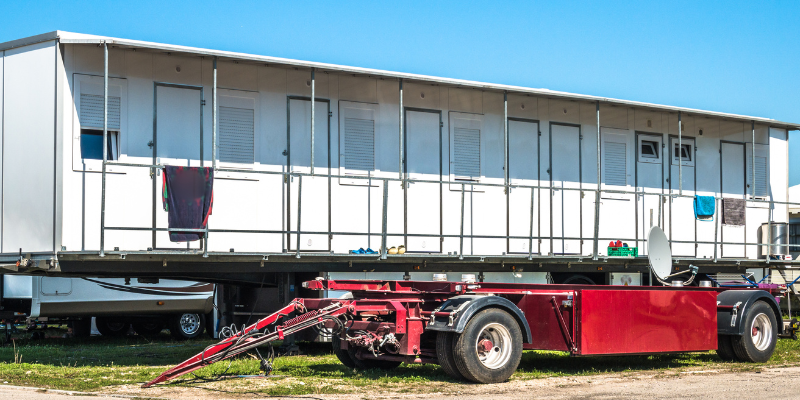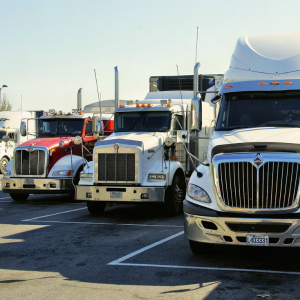
Texas is one of the largest states in the USA and is a mobile home-friendly state. Moving a mobile home presents costs and challenges. This guide will help you estimate the costs of relocating your mobile home to a new location within the state or downsizing to a smaller footprint. Mobile home relocation represents a significant challenge. You will learn how to move a mobile home with more control over the costs. You will also save costs, frustrations, and challenges in every aspect of the move. This includes acquiring the necessary permits, arranging transportation, and covering the costs; the mobile home move will be a stress-free experience. This lets you know your mobile home move will be with more control over the expenses. We can move your mobile home anywhere in Texas, the Lone Star State.
Key Highlights
- Understanding moving costs involves factors such as transportation, site preparation, and permits, which are essential for efficient relocation planning.
- Several factors, including distance, home size, and permits, influence mobile home moving costs in Texas.
- Accurate transportation cost estimation takes into account distance, home size, and additional requirements, such as the need for escorts.
- Hiring professional movers offers financial, logistical, and compliance advantages over DIY attempts.
- Proper preparation and avoidance of common mistakes ensure a smooth and cost-efficient mobile home move.
Understanding the Costs of Moving a Mobile Home in Texas
To start making sense of the moves operating out of Texas, we should begin with the fundamental factors that pricing hinges on, “distance” being one of the grander cost drivers, as farther routes will need extra fuel, labor, and time. In addition to distances, the grade and type of the home play a crucial role. For example, relocating a single-wide home is less of a hassle compared to moving a double-wide or an older single-wide home, as those older models often require extra preparation, such as escort vehicles or structural fortification. Added expenses to consider also include permits, inspections, and route planning, especially with the complexity of Texas’s vast highways and varied terrain.
Furthermore, there are additional services beyond the basics that can impact the total cost. There are extra charges for disconnecting and reconnecting home utilities, as well as removing and reinstalling the home’s skirting. There may also be additional charges for leveling or foundation work, and if access equipment is required for the mobile home’s transport, those costs will also need to be factored in. There is no standard mobile home transport, so obtaining written quotes from different licensed mobile home transport companies is a way to create a more accurate budget.
Mobile Home Cash Offer offers fair and transparent cash offers, along with a fast and hassle-free selling process. Our team handles every step with professionalism and integrity, ensuring a smooth experience from start to finish. We also help sellers understand the key factors that influence mobile home moving costs in Texas, including distance, home size, permit requirements, and necessary preparations.
Factors Influencing the Cost of Moving a Mobile Home
Multiple factors influence the cost associated with relocating mobile homes. One of the key factors is the distance of the relocation. Longer relocations take more time to fuel labor expenses. Another cost influence is the type of mobile home. Single-wide mobile homes are more affordable to relocate than double-wide mobile homes, which often require disassembly and reassembly.
Permits are an additional significant cost in the state of Texas. If relocating the mobile home to another county, a single-trip permit is necessary. Depending on the route and size of the mobile home, local additional permits may also be required. These should also be added to the budget, as they can fluctuate.
The construction of a new site will come at a cost. The cost of construction, which includes the requirement of a solid, level foundation, preliminary site grading, and the installation of essential utilities, is substantial, and the price increases exponentially if the ground is not prepared. Engaging a contractor to address both site development and transport will improve outcome quality but will increase the expense.
There is also the impact of delay. Moving during peak seasons is often more expensive due to increased demand. Off-peak will offer greater savings and is often a better solution than waiting. Effectively scheduling all of them will lead to greater control of the budget and a more efficient relocation.
Estimating Transportation Costs for Your Mobile Home

Accurately estimating mobile home transportation costs in Texas requires considering several important factors to ensure a budget-friendly move. Costs primarily depend on the distance of the move and the size of the home. Longer routes generally cost more due to increased fuel and labor, while route complexity—such as detours or rugged terrain—can also raise expenses. Because Texas is so large, careful route planning is essential to minimize unnecessary costs. Working with mobile home cash buyers in Texas can also simplify the process, as many offer resources or guidance to help sellers understand potential moving expenses.
The dimensions of the manufactured residence also play an essential role. Large models, such as double-wides, often require the use of specialized instruments or multiple trips, resulting in increased total costs. One-wide residences are more affordable to relocate, due to a smaller number of logistical issues. Regardless of their dimensions, all mobile homes are subject to judgment regarding safety, such as proper loading and securing, which can increase the total expense while also serving a safety purpose.
Various other elements that could influence pricing include the need for escorts, permits, or specialized hauling vehicles. More often than not, people hiring transport companies get more accurate and sometimes pricier estimates due to their experience. To find an affordable option that also ensures the safety of your home during the moving process, acquiring multiple quotes is most beneficial.
Planning for possible unanticipated scenarios is just as important as planning for the other aspects of the move. The weather in Texas is quite mesicky and unpredictable. They can cause delays and dramatically alter projected timetables and costs. Monitoring weather and route conditions can mitigate some of this risk of delay. Knowing the distance, size, and complexity of the route, as well as the possible difficulties of the project, helps create a more accurate estimate of transportation costs and lays an essential foundation for a cost-effective and seamless move of a mobile home.
Choosing the Right Moving Company for Your Mobile Home
Choosing a qualified mover is one of the first steps to take when planning to move your mobile home in Texas. Professional movers understand the intricacies involved in moving oversized items; they know how to calculate safe travel routes and coordinate the transportation move in accordance with the necessary state and county permits. Professional movers understand the framework Texas operates in and will be able to avoid penalties, impediments, and roadblocks that will allow the move to progress and stay compliant and organized.
Aside from possessing the necessary regulatory expertise, a professional mobile home moving company will likely offer cost-efficient solutions and avoid inefficient practices in the long term, ultimately reducing the costs associated with home moving. Experienced house moving companies, equipped with the proper training, equipment, and technology, have a lower risk of damaging the home, which saves money by avoiding repairs. This section of the text reviews the range of services offered by movers. It provides the primary rationale for working with an experienced moving company, which is to ensure a safe, timely, and cost-effective move.
Benefits of Hiring a Professional Moving Company

Hiring a company specializing in moving mobile homes will save you time, money, and headaches due to the advantages it offers. These experts in the field are the only ones who hold themselves out as being able to transport mobile homes safely, and considering it is Texas, that is a necessity. These professionals are familiar with the rules, obtain the necessary permits, and can effectively handle the complications associated with relocating large manufactured homes. They can also address potential issues that protect the house and save you money in the long run.
Movers that specialize in mobile homes will have the necessary tools and trucks for single-wide and double-wide homes, ensuring everything is in place beforehand to prevent unexpected problems. The streamlined process from inspections to paperwork will significantly save you time by avoiding potential issues associated with mobile home moving.
Most firms offer insurance coverage as an added financial security measure for their employees while they are in transit. Their offerings range from full-service moving to basic hauling, allowing you to choose the level of service that suits your needs and budget. In other words, hiring professionals to handle your move is a safer, easier, and more economical way to manage the process. With the help of professionals, the move will be much more efficient, and you can count on them.
Having considered the basic factors when choosing a moving company, these tips will further aid in selecting the most suitable one for your needs:
- Research the company’s experience with mobile homes specifically, as specialized expertise ensures safer and more efficient relocations.
- Verify that the company is licensed and bonded in Texas to protect against potential liabilities during transit.
- Request a detailed written estimate, including all fees, to avoid surprises when final expenses are calculated.
- Look for reviews specifically mentioning mobile home moves to gauge past customers’ satisfaction and identify potential red flags.
- Confirm if the company manages permits and adheres to local regulations, simplifying your part in the moving process.
- Inquire about their equipment to ensure it’s suitable for mobile home transport, preventing potential damage.
- Ask for referrals from friends or community members who have successfully relocated their mobile homes.
- Discuss the insurance coverage provided to understand the protection offered for your property on the move.
- Check if the company offers post-move support, such as setup and connection services, to help you settle into your new location.
Choosing wisely will ensure a smooth transition and protect your investment during the relocation process.
Preparing Your Mobile Home for the Move
Preparing your mobile home for a move may seem complicated, but with proper planning, it can be done smoothly. Numerous moving parts must work in sequence to ensure that everything goes smoothly, including obtaining the required Texas moving permits, disconnecting utilities, and inspecting for structural damage. Knowing in advance what the state requires to move a mobile home and addressing those needs will leave you better prepared for damage control. This is, effectively, the proper planning. In fact, you can relieve yourself from a lot of the anxious pressure that comes with such relocations.
As your mobile home is being prepared, preparing the site where your home will be located is equally essential. Your home site will need to be leveled, have a stable foundation, and utility setup arrangements will need to be made to eliminate delays and expensive fixes. Knowing the sequence of these critical tasks will make it easier to move on to the next steps. This sequence of tasks will facilitate the relocation of your mobile home and ensure its long-term stability.
For expert guidance or a fast, reliable cash offer, contact us today—our team is here to help you navigate every step of the process with clarity and confidence.
Essential Steps to Ready Your Home
Equipping your mobile home and yourself for transport requires adequate preparation. Each stage must satisfy both your personal safety and the transport regulations. Moving a mobile home is complex. You will need a single-trip permit from the Texas Department of Motor Vehicles to move a mobile home to a different County. Completing the requirements beforehand is advisable as the permits take time to process, and you will need to provide the home’s route and dimension details.
Your mobile home’s structure must be examined for any weaknesses before transport. Check for any loose siding and ensure that windows and doors are shut, and that the roof is securely fastened. Closing up loose ends, repair-wise, mitigates the risk of financial loss due to damage to the home and helps prevent further damage during transport. Ensure that all utilities, such as electricity, water, and gas, are professionally disconnected a few days before the day of transport. This is a safety and regulations concern, but also to avoid damage to any disconnected plumbing or wiring systems in your home.
Before the relocation of your home commences, the inside of the house will need some preparation. Remember to remove or secure furniture and personal items to prevent damage during transport. Make sure to do this even for short-distance moves. Also, remember to prepare the new site by leveling the area, stabilizing the foundation, and organizing utility connections. While this may require hiring professional services, appropriate preparation can avoid future costly structural concerns.
Most importantly, hire a professional mobile home mover in Texas. They are familiar with the rules and regulations of Texas, possess the necessary tools, and can load and transport your home in a manner that minimizes the risk of incurring costly mistakes. If you don’t want to complicate the mobile home relocation and want a professional touch, organize the permits and inspections, and you will have the peace of mind that you deserve.
Avoiding Common Mistakes During Mobile Home Relocation

When relocating mobile homes, some mistakes can be more expensive than others, so inadequate planning can be costly when moving mobile homes. Some mistakes can hinder their planning, first and foremost, because of the time that gets expensive and the money that gets wasted.
One of the most overlooked and expensive mistakes is the movable homes. Due to the large and diverse landscapes familiar in Texas, the routes require meticulous planning. If moving companies are hired without knowing the roads and terrain, there can be expensive detours. Most of these issues can be avoided by hiring proficient mobile home moving companies. They can make sure routes are properly permitted and driven.
Many homeowners also fail to budget for all costs. Focusing only on transportation while overlooking site preparation, utility reconnections, or minor repairs can lead to financial surprises. Creating a whole, detailed budget helps keep everything on track. Attempting a DIY move is another major mistake. While it may seem cheaper, it often results in damage, safety risks, or permit violations. Professional movers understand Texas regulations, possess the necessary equipment, and help prevent costly errors.
Poor securement is yet another risk. To safeguard the mobile home and its belongings during transport, secure everything inside the mobile home. Failing to do so can cause damage, and the reparative costs can be worse than the costs of doing it right in the first place. There is also the factor of time. Moving to and from Texas during the high-peak season and in the Texas weather can cause delays and increase expenses. Moving during the slow-peak in the weather or season is the best time to ensure a successful move.
Lastly, the new site must also be prepared and ready; otherwise, delays and unanticipated costs will be associated with the move. Complicated issues can be avoided by ensuring the site is level, easily accessible, and ready for utility hookups, thereby eliminating potential site-related problems. With the Texas mobile home move, common mistakes can be avoided through planning and specialized help, making the move more straightforward and on budget.
The Installation Cost After Moving Your Mobile Home
For both mobile homes and manufactured homes, understanding the costs associated with the installation after relocation is necessary. Note that the relocation process of a mobile home is not just a transport of the house. There are vital steps that need to be taken, including, but not limited to, site preparation, permitting, leveling the site, and utility connections. Each of these steps is crucial for ensuring the home is correctly set up and ready for moving in. An in-depth evaluation of these costs is necessary to ensure that you make an informed choice, stay within your budget, and avoid any hidden fees.
For both mobile and manufactured homes, understanding all the costs associated with installing the house after relocation is necessary to ensure a seamless and efficient transition. Each detail contributes to the overall setup cost, and so it is essential to evaluate all of them. The utility hookups are vital, and assessing any additional stabilization required to ensure the home complies with moving standards and is safe for use is also necessary. You need to break down these forecasted costs to understand what is to come and be able to properly plan the project without sacrificing quality in the process.
| Installation Element | Cost Factors | Professional Involvement | Importance | Potential Savings |
|---|---|---|---|---|
| Site Preparation | Terrain Complexity | Site Experts | Stability | Bundled Services |
| Utility Connections | Distance to Lines | Utility Services | Compliance | Risk Mitigation |
| Permitting | Local Regulations | Local Authorities | Compliance | Streamlined Approval |
| Home Type | Home Configuration | Site Experts | Comfort | Efficient Layout |
This table synthesizes the key factors influencing mobile home installation costs and illustrates how thorough planning facilitates efficient relocation.
Key Considerations When Setting Up Your New Home
As a company that buys mobile homes in California and across the entire country, we understand that setting up your mobile home after a move requires careful planning—especially in Texas, where regulations and terrain can vary widely. One of the most critical steps is preparing the site by leveling the ground and installing a proper foundation to ensure long-term stability. Costs will depend on the land’s condition and your home’s specific requirements, so budgeting carefully and hiring professionals can help you avoid issues and ensure compliance with state standards.
Restoring your utilities will also need to be addressed. Suppose your house needs to be reconnected to the city-owned utilities (water, electricity, and sewage). In that case, you will need to consider the cost, as each city has its own fees, and pipes running across your property may be a distance. Although reconnection costs may seem like a nuisance, they are necessary to make your home livable. Most companies will offer to bundle their services to save you money, but you will want to ensure they will complete the utility connections safely and comply with the relevant legal codes.
Restoration permits and utility reconnection permits require a transport license, but the city may also need its own permits for you to comply with zoning and health regulations. Familiarity with the local rules will help you avoid potential delays and fines. If you are concerned with timely compliance, your best option may be to find a professional to do the work for you.
Installation costs will differ depending on whether you have a single-wide or double-wide home. Larger homes often require more space, additional bracing, and alignment work, which can increase total setup expenses. Planning helps ensure your budget covers any extra steps your home may require.
Ultimately, mobile home installation is more than just placing a structure—it involves foundation work, utility setup, compliance with local regulations, and meticulous attention to detail. Taking the time to plan, budget, and consult with professionals helps ensure a smooth transition into your new home and protects you from unexpected costs after the move.
Moving a mobile home in Texas doesn’t have to break the bank. By planning, researching local regulations, and considering cost-effective options such as hiring experienced movers or handling specific tasks yourself, you can successfully relocate your home without incurring excessive expenses. Remember, preparation is key: obtain necessary permits, budget for potential surprises, and use the resources at your disposal wisely. Whether you’re seeking a fresh start or simply a change of scenery, this guide empowers you to make informed decisions and ensures a smooth, affordable moving experience.
FAQs:
What factors influence the cost of moving a mobile home in Texas?
The cost of relocating a mobile home in Texas is influenced by distance, the size of the house (single-wide or double-wide), and the necessary permits. Transport complexity, such as route detours or the need for escorts, also affects the cost.
How can I ensure my mobile home move is budget-friendly?
To ensure a budget-friendly move, plan, research local regulations, and consider hiring professional movers. Proper preparation, avoiding peak seasons, and securing necessary permits can help save costs.
Why is hiring a professional moving company recommended?
Hiring professional movers is recommended for their expertise in navigating logistical challenges and compliance with regulations. They offer financial and logistical advantages, reducing risks and ensuring efficient handling of your mobile home.
What are the key steps in preparing my mobile home for a move?
Key steps include securing moving permits, inspecting your home for potential vulnerabilities, disconnecting utilities professionally, securing your belongings, and preparing the new site for installation. Engaging professionals for these tasks enhances safety and compliance.
What common mistakes should I avoid when relocating my mobile home?
Common mistakes include underestimating the complexity of the move, failing to budget for all associated costs, attempting a DIY move, improper securement during transit, poorly timed moves, and neglecting site preparation. Engaging professional services can prevent these issues.
Need to sell your mobile home fast? Mobile Home Cash Offer buys mobile homes as-is for a fair cash price. No repairs, no hassles — we handle everything. Do you have questions, or are you ready for an offer? Call 214-444-6375 for a quick, no-obligation cash quote.
Helpful Texas Blogs Articles
- Selling A Tenant-occupied Mobile Home In Texas
- Selling Your Mobile Home In A Texas Park
- Selling A Mobile Home On Leased Land In Texas
- Selling A Water-damaged Mobile Home In Texas
- Effective Strategies To Sell Your Older Mobile Home Fast In Texas
- How To Successfully Sell Your Mobile Home As-Is in Texas
- Selling Your Double-Wide Mobile Home In Texas
- How To Handle An Abandoned Mobile Home In Texas
- Maximize Tax Benefits By Donating Your Mobile Home In Texas
- Understanding Taxes On Selling A Mobile Home In Texas
- The Cheapest Way to Move a Mobile Home in Texas
- Selling a Mobile Home That Failed Inspection in Texas
- Selling a Mobile Home with Roof Damage in Texas
- Selling a Mobile Home on Private Property in Texas

